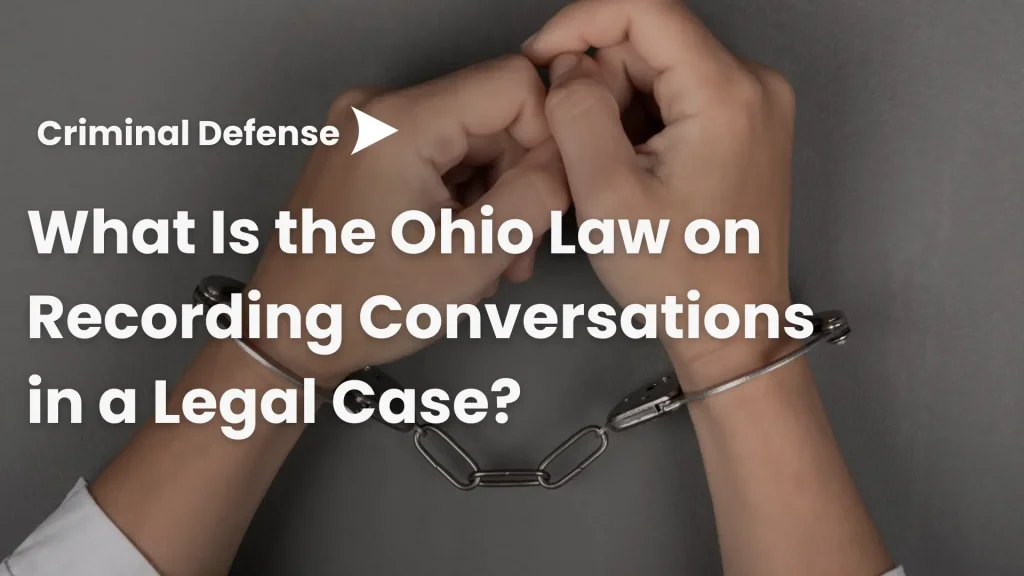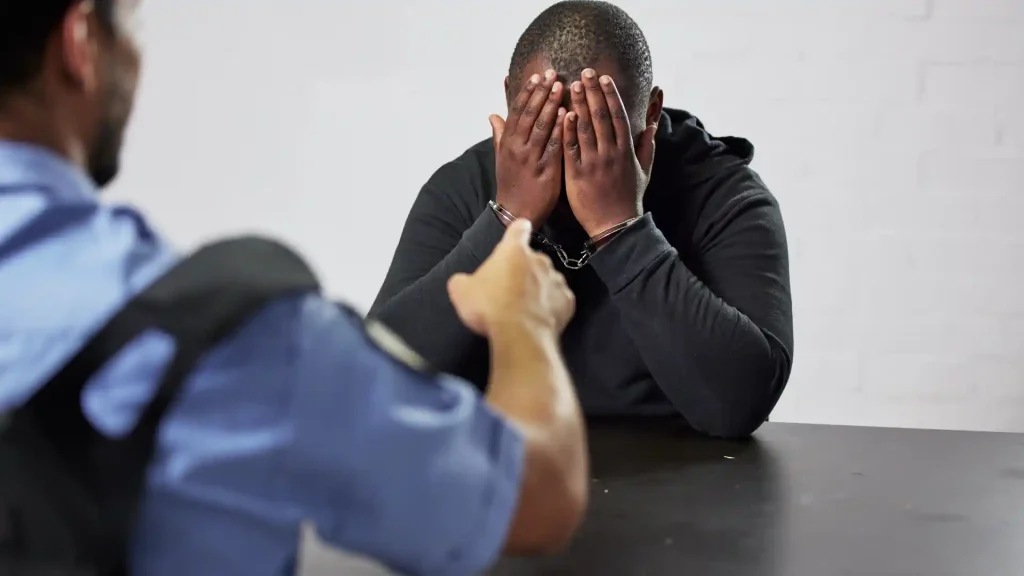Posted on Wednesday, August 28th, 2024 at 8:05 pm
 If you’re wondering, “What is the Ohio law on recording conversations in a legal case?” you’re not alone. The laws governing conversation recordings can vary significantly from one state to the next, and many people are unsure of the legal boundaries surrounding this issue. Can you record a conversation in Ohio without consent? Here’s what you need to know about Ohio’s laws concerning what is and isn’t permissible when recording conversations.
If you’re wondering, “What is the Ohio law on recording conversations in a legal case?” you’re not alone. The laws governing conversation recordings can vary significantly from one state to the next, and many people are unsure of the legal boundaries surrounding this issue. Can you record a conversation in Ohio without consent? Here’s what you need to know about Ohio’s laws concerning what is and isn’t permissible when recording conversations.
Understanding Ohio’s One-Party Consent Law
There are two main doctrines regarding the legality of recording conversations, which vary from state to state. Some states have “one-party” consent laws, while others have “two-party” consent laws.
In a two-party consent state, all parties involved in a conversation must agree to the recording. This means that, in two-party consent states, unauthorized recordings are generally inadmissible in court.
In a one-party consent state, obtaining permission from all parties is unnecessary to record a conversation legally. You only need permission from one party involved in the conversation.
Per Ohio Rev. Code §§ 2933.51, Ohio is a one-party consent state. This means that under Ohio law, only one person involved in a conversation needs to consent to its recording. If you participate in a conversation, you can legally record it without notifying the other party. This applies to in-person, telephone, and digital conversations like video chats.
However, this law does not grant blanket permission to record all conversations indiscriminately. The recording must be for a legitimate reason, and the person recording the conversation must be an actual participant. Recording conversations in which you are not a participant or when neither party has consented can lead to serious legal consequences.
This distinction is essential when considering the legality of recording conversations that might be relevant in legal cases. In Ohio, as long as one party consents, a recording is typically admissible as evidence, provided the recording party obtained it legally.
Ohio Recording Laws and Their Implications
Ohio’s recording laws extend beyond phone calls and face-to-face conversations. They also cover electronic communication, such as emails, texts, and other digital communications. If you are considering recording a conversation in Ohio, it’s wise to know the following key points.
Legitimate Purpose
You must record the conversation for a legitimate reason, such as documenting evidence for a legal case or protecting your legal rights.
Consent
In Ohio, only one party needs to consent to the recording. So, if you are part of a conversation, you can record it without informing the other party.
Privacy Expectations
The law also considers the expectation of privacy. For instance, if the conversation occurs in a public space without a reasonable expectation of privacy, the recording might be permissible even without consent. However, the rules differ if the conversation happens in a setting where the parties involved would expect privacy.
The Role of Recorded Conversations in Legal Cases
Recorded conversations can play a significant role in legal cases. For instance, they could help prove or disprove allegations, provide evidence of intent, or clarify the context of a situation. However, the admissibility of such recordings depends on how the recording party obtained them.
In Ohio, as long as the recording was made legally—with at least one party’s consent—it is generally admissible in court. A lawfully admissible recording can be a powerful tool in defending against criminal charges or pursuing legal action against another party.
Limitations and Ethical Considerations
While Ohio’s one-party consent law provides broad permissions for recording, there are essential limitations and ethical considerations to keep in mind:
- Purpose Matters: Recording a conversation for an illegal purpose, such as blackmail or harassment, is prohibited regardless of consent.
- Expectation of Privacy: In certain situations, recording could be illegal if it violates a reasonable expectation of privacy.
- Business and Workplace Recordings: Employers have more leeway in recording conversations on their premises, but they generally must inform employees if they choose to do so.
- Confidential Communications: Certain communications, such as those between attorneys and clients, doctors and patients, or clergy and penitents, have additional protections.
Federal Laws on Recording Conversations
Federal laws also apply to recording conversations. For instance, the one-party consent rule applies under federal law. This means that as long as one party to a conversation consents, it is federally legal to record it. However, if a conversation crosses state lines, it is necessary to consider both states’ laws.
For instance, if you are in Ohio and recording a conversation with someone in a two-party consent state, you might be violating that state’s laws even though Ohio law permits the recording. This can lead to complex legal challenges, so it’s wise to be aware of the rules in both states when recording conversations that cross state lines.
What to Do If Someone Records Your Conversation Without Consent
 You could have legal recourse if you discover that someone has recorded a conversation you participated in without your consent. Depending on the circumstances, you may be able to pursue a civil lawsuit for invasion of privacy or other related claims.
You could have legal recourse if you discover that someone has recorded a conversation you participated in without your consent. Depending on the circumstances, you may be able to pursue a civil lawsuit for invasion of privacy or other related claims.
In such cases, you should consult a qualified attorney who can assess the situation and guide you on the ideal course of action. The attorneys at Moermond & Mulligan, LLC have extensive experience handling cases involving unauthorized recordings and can explain your rights under Ohio law.
Discuss Your Case with an Experienced Criminal Defense Lawyer from Moermond & Mulligan, LLC
Understanding Ohio law on recording conversations is essential, particularly if you are involved in legal proceedings where recorded conversations could be used as evidence. If you have questions about your rights regarding recording conversations or need legal assistance with a case involving recorded evidence, don’t hesitate to speak with a Cincinnati criminal defense attorney with Moermond & Mulligan, LLC.
With over 50 years of combined experience, our team is well-equipped with the legal knowledge and proven track record to provide the guidance and representation you need. Call us today at (513) 421-9790 for a free and confidential consultation.
Related Posts:
Written By: Moermond & Mulligan, LLC
Last Updated: 02-11-2025